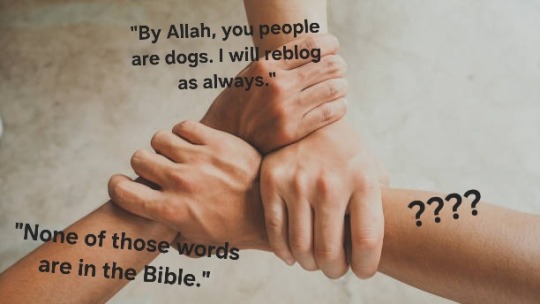Text
I would like you to consider: Synagogue Architecture (spanning many places and many eras of history)








Look at them!! Stunning! Amazing! Beautiful!!!!! And these are the ones left standing, I can’t imagine what the many many others that were lost could have looked like.
3K notes
·
View notes
Text
Day 10
I love that one of the suggestions for one of the last ten things made during twilight of the eve of the first Shabbat were ‘tongs for making other tongs.’
71 notes
·
View notes
Text
More convert advice no one asked for but that I’ll throw out there anyway:
Commit to listening only to Jewish music for the foreseeable future. It’ll really help both your Hebrew and your ability to intuit where a song you don’t know is going and/or where the line repeats are (because of course they aren’t marked lmao)
Make learning alef-bet a top priority, because the faster you can follow along with the Hebrew and wean yourself from the transliterations, the less frequently you’ll be lost. You don’t have to know the full words or their actual translations just yet - learn a few highly recognizable words and then keep up while people are reading/chanting by recognizing the first letter.
Davening (even just saying the morning and evening Shema) and working on the home rituals and the brachot will really help your Hebrew and ability to follow the liturgy in addition to being a good habit to get into.
Listen more than you talk. I know this is really hard as someone who nervous-talks, but just force yourself to accept some awkward silences and get really good at asking people questions.
Immerse yourself as much as possible. I mentioned this in the tags of that other post, but this is a lot more like acculturating than regular socializing, so diving in headfirst is actually a lot more helpful than tiptoeing in.
You’re gonna make awkward mistakes. It WILL happen. Most people won’t notice, won’t care, will do it themselves next time, and/or won’t remember. Learn to laugh at yourself.
Seriously everyone gets lost at least once or twice per service except That One Guy who’s been attending services every week for the last 80 years and just… don’t worry about him.
As my bestie taught me early on (and was 110% right about): Someone Is Always Later Than You
Corollary to the above point: Sometimes It Has To Be You And That’s OK
So like, not all rabbis are equally good with people, but please try to keep in mind that they usually have a LOT going on, especially around the holidays, and try not to take distance personally.
You don’t have to have a good voice or know the songs to sing along. Or, as one service leader said: “If you know the songs, sing along; if you don’t know them sing louder.” If you’re really hung up on it, sit next to someone who sings loudly off-key until you’re more confident.
If people offer you food and you are capable of eating it, eat the damn food!
Try to remember that most people are totally absorbed in their own lives and are not likely to remember that awkward thing you did or said. Really. Paranoia about this is more likely your anxiety biting you than based in reality.
Most people are nice (or nice enough) and want you to feel comfortable there.
On the other hand, if people really are being mean, you may want to find a way to mention it to your Rabbi.
If it’s a really bad fit, you may need to find another synagogue. Don’t be afraid to jump ship or branch out if you need to.
Hang tight - the culture shock won’t last forever, I promise!
1K notes
·
View notes
Text
“This is the paradox: Trauma changes us in permanent and enduring ways. But we have a choice about the outcome of our story. We can bemoan our fate as victims of history. Or we can recognize our pain and follow the circumstances of our lives into unforeseen directions and new meanings. We can ask: What does this terrible wound inspire me to do that I would never have thought to do otherwise?”
— “Wounds into Wisdom: Healing Intergenerational Jewish Trauma,“ by Rabbi Tirzah Firestone, PhD
157 notes
·
View notes
Text
Suffering in and of itself is meaningless; we give our suffering meaning by the way in which we respond to it.
- Viktor Frankl, “Man’s Search for Meaning”
48 notes
·
View notes
Text
"There is a great element of protest in all religion. Those who dedicate their lives to serving G-d have often dared to question His justice, and to rebel against his seeming neutrality in man's struggle between good and evil. I feel therefore that there is no basic difference between rebellion and prayer."
from "The Penitent," by Isaac Bashevis Singer
80 notes
·
View notes
Text
However G-d appears in the present and has appeared in the past, we cannot know how G-d will appear in the future. G-d is not only what we know G-d is: G-d is also what G-d will be. If there had been a female name that meant "I am what I will be," I would have embraced it during transition. I was no longer the man I had been, and wasn't yet the person I was growing into: I defined myself in terms of what I was becoming. I still do. As other trans people warned me before I started to live as myself, the process of transition is never complete. I will never just be what I am; I will always be what I will be.
— Joy Ladin, “The Soul of the Stranger: Reading G-d and Torah from a Transgender Perspective”
74 notes
·
View notes
Text
The balancing act G-d engages in when relating to human beings is familiar to many transgender people. If we fit ourselves too completely into binary gender terms, we find ourselves back in the closet, hidden from others the way G-d is hidden from Abraham by appearing as three men. If we present ourselves in ways that don't fit familiar terms at all, we, like G-d thundering at Sinai, risk being seen as incomprehensibly, dangerously other.
— Joy Ladin, “The Soul of the Stranger: Reading G-d and Torah from a Transgender Perspective”
54 notes
·
View notes
Text
“There’s a great Yiddish expression that says, “If I knew God, I’d be God.” In fact, I think that claiming that you “know God’s will” is an act of incredible hubris. Instead, what we say about God has much more to say about us than about God. There are, in fact, a whole range of different theologies within Judaism (you can find some of them in the terrific books “Finding God” and “The God Upgrade,” both of which describe a whole range of differing, and sometimes even conflicting, theologies.) And while I can only speak personally here, to me, “God” isn’t really a noun at all—it’s a verb. Here’s why. The most common name that God gives Godself in the Torah is “YHWH,” a name that is sometimes thought to be so holy that no one was allowed to pronounce it. But that’s not exactly right—it’s not that “YHWH” was not allowed to be pronounced, it’s that it is literally unpronounceable, since it consists of four Hebrew vowels (yod, hay, vav and hay). By the way, that’s also why some people incorrectly call this name “Yahweh,” since (as Rabbi Lawrence Kushner once said), if you tried to pronounce a name that was all vowels, you’d risk serious respiratory injury. But even more importantly, the name YHWH is actually a conflation of all the tenses of the Hebrew verb “to be.” God’s name could be seen as “was-is-will be,” so God isn’t something you can’t capture or name—God is only something you can experience. And indeed, when Moses is at the burning bush, having just been told by God that he will be leading the Israelites out of Egypt, he says, “Suppose I go to the Israelites and say to them, ‘The God of your fathers has sent me to you,’ and they ask me, ‘What is his name?’ Then what shall I tell them?” God responds that God’s name is “Ehyeh asher ehyeh,” which is often translated as “I am what I am.” But it could also be translated as, “I am what I will be.” So God is whatever God will be—we simply have no idea. Indeed, for my own theology, I believe that God is found in the “becoming,” transforming “what will be” into “what is.””
— Rabbi Geoffrey A. Mitelman
5K notes
·
View notes
Note
Why is God so quiet?
because it’s your turn to talk
10K notes
·
View notes
Text
“This is one of the goals of the Jewish way of living: to experience commonplace deeds as spiritual adventures, to feel the hidden love and wisdom in all things.”
- Rabbi Abraham Joshua Heschel
391 notes
·
View notes
Text
A year ago I would not think I would've had to get off the phone with my best friend and hear her say, "Good luck on the becoming Jewish thing despite all the neo-nazis!" and I respond with "Good luck on not getting deported!" Clearly having we're all having The Greatest Time Ever.
#she's here legally!! but she's got the worst luck imaginable so I do worry#but she was really chill about me telling her I was converting. Which I knew she would be! Idk why I was nervous!#also both of us shaking hands on not knowing if we can leave the country and get back in
0 notes
Text

Where's my Jewish phrase for when you people are being irrevocably horny?
#this reminds me of the article I got delivered straight to my inbox about how sex is good to have on shabbat#but "some activities are avoided due to prohibitions on things like tying knots”#good to know my bondage kink is fine for the other 6 days of the week!
74K notes
·
View notes
Link
During the course of psychotherapy, a man reports fragments of dreams: “I am hiding in the cellar from soldiers who are searching for me. Overwhelmed by anxiety, I know that if they find me they will kill me on the spot… Then, I am standing in line for selection; the smell of burning flesh is in the air and I can hear shots fired. Faceless and undernourished people with striped uniforms march away to the crematoriums. Then, I am in a pit full of dead, skeletal bodies. I struggle desperately to bury the cadavers in the mud, but limbs keep sticking up from the wet soil and keep floating up to the surface. I feel guilty for what has happened, though I do not know why. I wake up in a sweat and immediately remember that these were the kinds of nightmares I had ever since I was a child. During a lifelong journey of mourning, I have been travelling back to the dead; to the corpses and graveyards of the Second World War with a prevailing sense of numb grief for all those anonymously gone.”
From the content of this dream, the man could have been a Holocaust survivor. But he was not. He was the child of a survivor. His mother had survived the Auschwitz-Birkenau concentration camp. But he, himself, was born long after the war had ended in a country far removed from the horrors of the Holocaust. Why was he dreaming such dreams about half a century after the war? Why are children of Holocaust survivors still experiencing the effects of the Holocaust as if they themselves had actually been there? How do we explain that the so-called “second generation” seems to share the grief and terror of their traumatized parents? Was the trauma of the parents somehow transmitted to them?
Keep reading
745 notes
·
View notes

